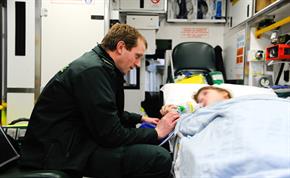
Did you know that there’s a National Institute for Health and Care Excellence (NICE) guideline around end of life care?
The Care of dying adults in the last days of life sets out the care that people should receive in the last two to three days of their life.
The ways in which people die and how long this takes varies widely, mostly because of the underlying diseases responsible but also the person's robustness or frailty, and their social setting; some people remain mobile and largely self-caring, and can continue to take oral medication and eat and drink up until their death. Others may die suddenly and unexpectedly after a significant trauma, or catastrophic medical event. Some people may never experience any of the symptoms addressed in the guideline, but the recommendations apply to all people at the end of life, whether they are conscious or unconscious.
The guideline provides recommendations to help you in:
What about those under 18?
There’s a separate NICE guideline, End of life care for infants, children and young people with life-limiting conditions: planning and management, for end of life and palliative care for infants, children and young people (aged 0–17 years).
It includes recommendations on:
This week the Trust also launched its own end of life care flowchart to help support you when caring for and identifying those patients in their last few days.
Providing support and care to adults and children at the end of their lives can be exceptionally difficult. Please remember that if you need help at any time there are a number of confidential support options available to you, including our health and wellbeing hub, trauma risk management (TRiM), and the employee assistance programme. You can find out more on the health and wellbeing pages of East24.
Published 20th April, 2017